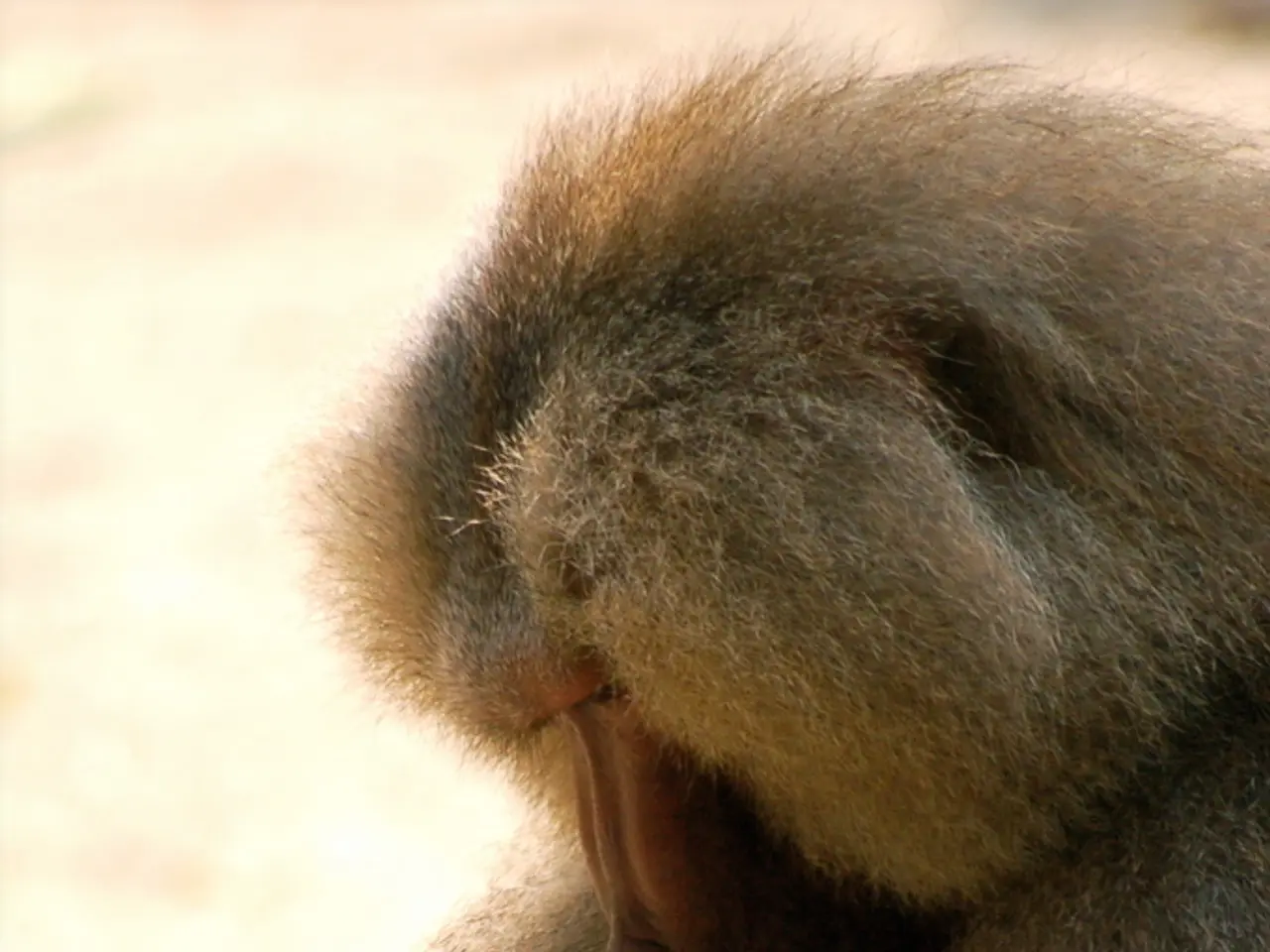Snoozing Like Humans: Orangutans Take Power Naps to Boost Cognitive Function
Orangutans resume their nap positions.
Orangutans, like humans, might need a nap if they don't get enough shut-eye at night. These power naps help these dexterous apes restore their cognitive abilities, according to new research.
If an orangutan misses out on adequate slumber during the night, they'll catch up on some Z's during the day, akin to our coffee-fueled afternoon slumps. Alison Ashbury, a researcher from the Max Planck Institute for Behavioral Biology (MPI-AB) in Radolfzell, explained, "If an orangutan doesn't get enough sleep, they'll do what any sleep-deprived human might do: they'll find a cozy spot and take a nap."
The research team, who published their findings in the journal "Current Biology," found that the cognitive tasks orangutans are faced with - like navigating the forest canopy, foraging for food, and maintaining social relationships - are mentally demanding. A wild Sumatran orangutan typically snoozes for almost 13 hours a night, but this can decrease if they have other orangutans nearby, the cold is biting, or they've traveled long distances during the day.
The Impact of Socializing
Ashbury noted that the presence of other orangutans was linked to shorter sleep times. "Think about staying up late with friends or a roommate snoring loudly, causing you to wake up early," she said. An orangutan may prioritize socializing over sleep or be disturbed by another orangutan's presence, or both.
The researchers discovered a clear correlation: for every hour less sleep at night, the daytime naps extended by about 5 to 10 minutes. On 41% of observed days, orangutans napped at least once, with an average duration of 76 minutes. Moreover, these short naps led to the orangutans taking more naps throughout the day.
The Evolutionary Significance of Sleep
Meg Crofoot, co-author and director at MPI-AB, stated, "Even a brief nap can have a significant restorative effect on humans. It's possible that these naps help orangutans recover physiologically and cognitively after a poor night's sleep, much like in humans." This study sheds light on the evolutionary origins and purposes of sleep: "Why have animals, from humans to primates and even spiders to jellyfish, evolved to spend such a large part of their lives in this vulnerable, unconscious state?"
The research was conducted on adult orangutans at the Suaq Balimbing Monitoring Station on Sumatra, Indonesia. The team analyzed behavior over 276 nights and 455 days between 2007 and 2021, using a long-term dataset on 53 animals. Orangutans from the Suaq population build day nests more frequently, offering a secure spot for a nap when the going gets tough.
Can You Spot the Snoozing Simians?
Spotting orangutans napping among the forest canopy wasn't always easy, the researchers noted. Every evening, an orangutan spends around ten minutes crafting a nest high up in a tree, weaving, bending, and breaking branches, topping it off with a comfy mattress of leaves. Although researchers can't see the orangutans during their nighttime slumber, they can hear the peaceful quiet before they settle in, and then the noisiness that follows in the morning. The researchers interpret this quiet phase as a sleep phase.
Fascinating Facts:
- Orangutan DIY Healing Paste: Orangutans, in their pursuit of self-care, use homemade healing pastes made of liana leaves to manage wounds.[1]
- The Debate: Is napping good or bad for overall health?[2]
[1] M. McLennan et al., "Self-Medication in Wild Western Lowland Gorillas (Gorilla gorilla gorilla) and Orangutans (Pongo pygmaeus)" Journal of Ethology, vol. 34, no. 2, pp. 237-248, 2018.
[2] L. Leproult et al., "Sleep Defense: The Neurocognitive Costs of Restrained Sleep" Sleep, vol. 30, no. 3, pp. 335-340, 2007.
- Orangutans
- Animal Behavior
- Sleep and Restoration
- The study on 'Orangutans' provides insights into the evolving science of sleep, suggesting that these primates take power naps as a means to restore their cognitive abilities, much like humans.
- To foster health-and-wellness in captive orangutans, implementing community policy that includes access to appropriate vocational training could enable them to establish a better sleep schedule and improve both their physiological and cognitive function.








